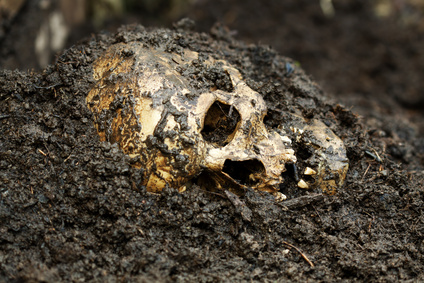There are three lives involved in the decision to abort an unborn child, and no law or political agenda addresses all three. The two dominant ideologies on this issue address only one of the three, to the detriment of the other two.
Mother. It is her body and life that will be most significantly affected, not only in the nine months of gestation, but in the months and years that follow. She will lose time at work and will incur medical expenses, and her lifestyle will be completely transformed. A pregnancy that is unexpected or unplanned could put the mother at great financial risk and be jarringly disruptive to her daily routine as well as her life goals. The laws that protect the child leave mothers who are disadvantaged at an even greater disadvantage.
Baby. Is it a person at conception? That is semantics. What is created will become a person, a human being. At what point does it become a human being? It has all the genetic material at conception that is required to grow into a self-sufficient person. If the mother has rights, so does the human being created by what the mother did to create it.
Father. The genetics inside those two initial cells that come together are half from the mother and half from the father, should he not be a part of the discussion? The human being that was created required two people agreeing to perform an act together (rape is the obvious exception), why should they not be required to make decisions together regarding the product of the act that they together agreed to do?
There is no such thing as “rights.” Unless there is a God or Ultimate Creator who establishes a moral standard and assigns rights, what we call “rights” are merely a decision regarding what we personally or our society collectively values. Therefore, the better question is: what do we value? You do not value “life” if you neglect the mother, the unborn child, or the father.
Choice. A conception happens when two consenting adults choose to have sex (rape is the obvious exception). This choice comes well before the decision to abort. Should we not be required to consider the consequences of sex? When I was a kid, HIV scared us all, and we all considered the consequences of sex. I have heard well-to-do young women speak on avoiding sex acts that could lead to pregnancy because they first wanted to get established, go to school, and get married and settled. A choice. Our culture values the right to have sex when and with who we want, and Christians are as culpable in this as anyone else, because we participate in this culture’s values. But if that “right” to make that choice has a consequence of creating a human being, that decision is a very weighty decision. We take it too frivolously.
Life. What law can be written that will be able to distinguish an abortion for convenience verses an early birth due to medical complications? Or a medical condition that endangers either mother or child necessitating an abortion? Why should doctors fear doing their job because of zealous idealogues pursuing a self-serving agenda? And it is self-serving, because the all-or-nothing anti-abortion campaigns are not pro-life at all. They are singularly focused on a narrow agenda that excludes the impacts on all the lives surrounding that child’s life. And the life of the mother matters, because if an unexpected pregnancy has a devastating effect on the mother, should not her life matter as much as the child’s? Those who are “pro-life” should put their money where their mouth is and pay for the expenses caused when the disadvantaged have an unexpected child.
Lost. The fathers are lost in all these ideologies. Except in rape, the mother made a choice to share an intimate experience with a man who becomes a father at the exact same moment that she becomes a mother. We can hold him financially responsible for the choice he made to have sex, and yet we exclude him from having any say in whether what is created lives or dies? My brother has six kids, but he also had two miscarriages. After the first one, I was talking with him on the phone and babbling on about my own nonsense when he snapped at me and said he was mourning the loss of a child. I had no idea, but a miscarriage has the same emotional impact on the parents as losing a child, both mother and father. I hear woman talking about their bodies and their rights, what about a father’s rights, a father’s soul? My three-year-old is half me and my wife: my choice matters, and my wife’s choice to have a child with me matters, and I have a say in my child’s life.
Rape. The perspective that the created child is a part of the trauma is just that, a perspective. It is also a valid perspective that the life created from that horrific experience can redeem that loss. What we value matters, and if the created life matters, it can become redemptive. However, I do not believe we should force a woman to have the child if it adds to her trauma. No law can contain the compassion needed to address the trauma and the healing process of rape.
No law or political ideology addresses all the lives involved in an abortion. But what we value matters, and the laws reflect what we value. Do we value our pleasure over the consequences of our decisions? Do we have a “right” to make laws that are completely unable to address all the issues and needs surrounding this huge event? And the creation of life is just that: huge.
Our society is wrestling with what it values, and the different sides are demonizing each other. But all I see are demons arguing against the value of lives that are unimportant to them.
This is a brief article touching on issues that obviously can be explored much more thoroughly than I have done here.
Blessings! – Shamar Covenant




